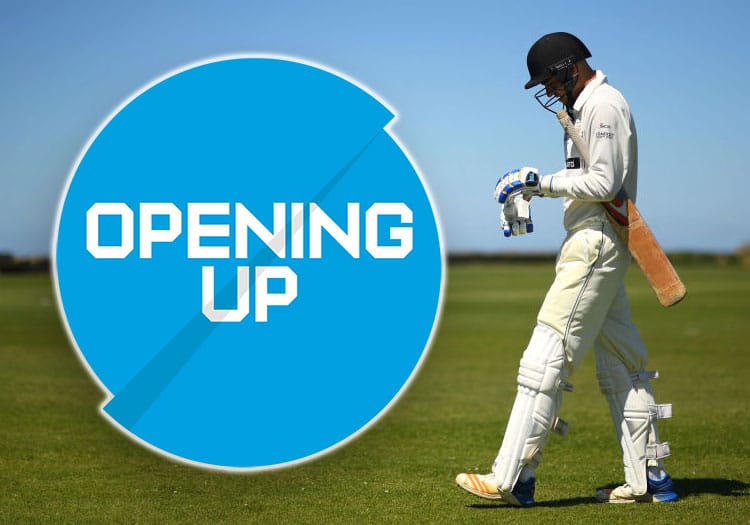Cricket is a game that involves expertise, game plans, and fitness. Nevertheless, the need to achieve good results, the public opinion, and the stress placed on the person may seriously affect the mental health of a player. The last few days have witnessed an increased awareness about the need to create mental health awareness in the cricket world, and several individuals, teams, and the cricket board are trying to spread the message of mental well-being to the maximum number of people and aid the players who are not coping.
The challenges faced by cricketers:
Cricketers have a particular set of problems that may affect their psychological well-being. It can be very stressful and intimidating not to perform and not to succeed. A public eye can also be a heavy cause of stress. Detractors always observe and criticize the players. The game also requires pressure that is both physically and mentally draining, and thus the players are left feeling drained and exposed.
The importance of support systems:
Cricketers in a poor mental state need a strong support system. These may involve family members, friends, coaches, and mental health advisors. The cricketing fraternity must establish a culture of encouragement and empathy where one should not be afraid to open up and seek assistance with what they are going through. Mental Health and Cricket Organization A lot of cricket organizations are acting in an effort to raise awareness of mental health and help struggling players.
To give an example, Cricket Australia has introduced a variety of activities associated with raising awareness about mental well-being and helping players with mental-related problems. England and Wales Cricket Board (ECB) too has introduced a number of steps, like a mental health helpline to players
The Role of Players in Promoting Mental Health Awareness:
Players have a critical role to play in promoting mental health awareness in cricket. By speaking out about their own struggles and experiences, players can help to break down the stigma associated with mental health issues and encourage others to seek help. Many players, including Virat Kohli and Glenn Maxwell, have spoken out about their struggles with mental health, helping to raise awareness and promote a culture and understanding.
The Way Forward:
The cricketing fraternity must keep on collaborating to raise awareness regarding mental well-being and accompany those players that are having a hard time. This may involve making mental health care providers and support services accessible, fostering cultures of knowledge and assistance, and getting players to be open about their troubles and ask for help. United efforts will allow us to establish a more positive and accessible atmosphere for all players.

The Challenges Faced by Cricketers:
Cricketers face unique challenges that can impact their mental health, including
- Performance anxiety: Fear of underperforming in key matches can cause immense stress
- Injury-related stress: Injuries can be career-threatening, leading to anxiety about recovery and future prospects.
- Depression: Prolonged periods of poor performance, injury, or isolation can lead to depression.
- Burnout: Packed schedules can lead to mental and physical exhaustion
- Media and public pressure: Constant scrutiny can affect a player’s mental health.
Cricketers speaking out about mental health:
Several international cricketers have spoken out about their mental health struggles, including:
- Virat Kohli: Opened up about his mental health struggles after returning from break in 2022, citing the need to prioritize his well-being
- Glenn Maxwell: Took a break from cricket in 2019 to focus on his mental health, citing anxiety and depression.
- Ben Stokes: Announced an indefinite break from Cricket in 2021 to prioritize his mental health, revealing struggles with panic attacks and anxiety
- Jonathan Trott spoke about his struggles with mental health issues, including anxiety and depression, which led him to quit international cricket in 2015.
- Praveen Kumar shared his struggles with depression and suicidal thoughts, highlighting the importance of seeking help and support.
- Shaun Tait: Took a break from Cricket in 2008 to focus on his mental well-being, citing the need for a clear mind
- Andrew Flintoff: Opened up about his struggles with mental health issues, including depression and anxiety, which affected his cricket career
- Marcus Trescothick: Spoke about his struggles with mental exhaustion and depression, which led him to retire from cricket.
- . Sarah Taylor: Decided to give up cricket due to her anxiety and mental health struggles
- Ishan Kishan: Took a break from cricket due to continuous competitive pressure and mental exhaustion.
- Robin Uthappa: Spoke about his struggles with depression, highlighting the stigma surrounding mental health in sports and society
Strategies for coping with emotional distress:
Cricketers can use various strategies to cope with emotional distress, including:
- Mindfulness and meditation: Can help manage stress and anxiety
- Regular counselling and therapy can help address mental health concerns proactively
- Regular counselling and therapy can help address mental health concerns proactively
- Physical fitness and exercise: Regular exercise can improve mental health
- Physical fitness and exercise: Regular exercise can improve mental health
Mental health is a crucial element in cricket, and every player, coach, and institution has to pay attention to mental health. Talking about their experiences and asking them to support the cricketers will be able to eliminate many of the stigmas associated with mental illnesses. It is high time Cricket could act proactively towards mental health and implement the appropriate support mechanisms where the players would not just flourish on grounds but off grounds as well.


[…] a footballer. To fans in Liverpool, he was a game-changer; to Portugal, a national treasure; and to his family and friends, a devoted husband, father, and brother. News of the crash sent shockwaves across the footballing […]
[…] the ideas but also injects them into the veins of other players. He always prioritizes red ball cricket over the white ball. To revive from the downfall, England needed a captain who led the team from […]